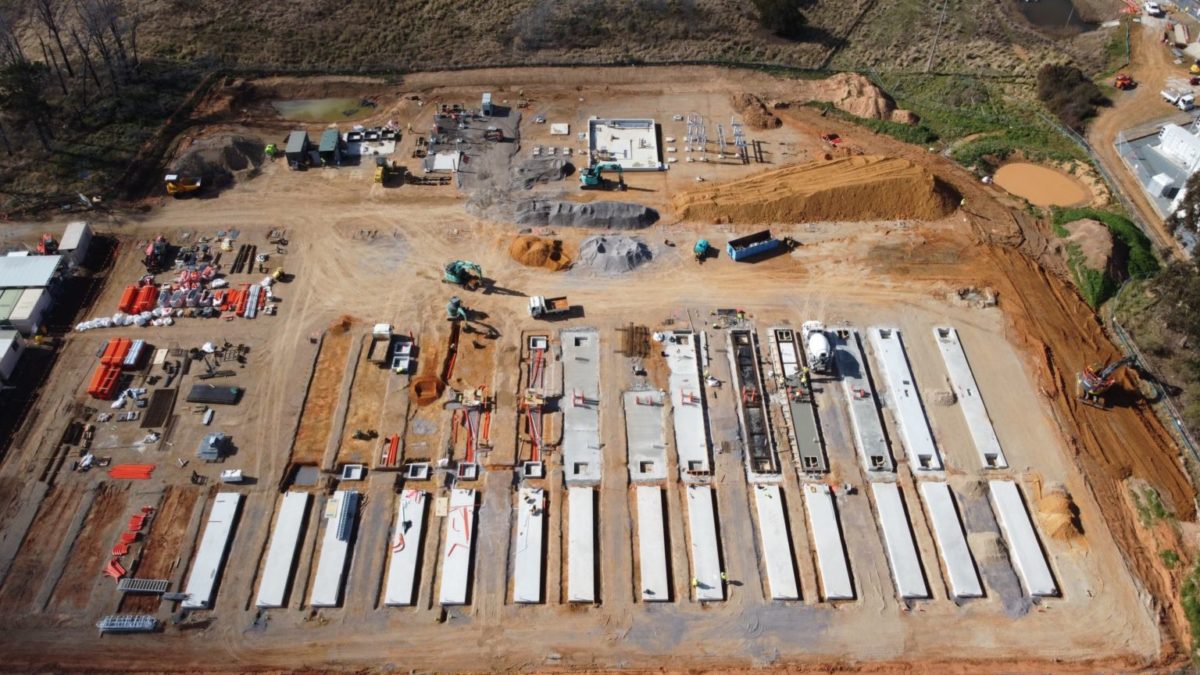The owner and operator Australia’s two biggest batteries, Neoen, is close to switching on its third installation in Canberra.
The so-called “Capital Battery” will be owned by Neoen and financed through a combination of company equity and loans from infrastructure fund manager Infradebt, as well as Clean Energy Finance Corp. (CEFC). It is the third investment that the CEFC has made in Neoen’s Australian big batteries.
The battery is set to deliver grid support services to the network, presumably through what’s known as virtual synchronous machines, or grid-forming inverters, Neoen said. Such tech gives batteries the capacity to help stabilize the grid by providing inertia.
This is something the company’s 150 MW/193.5 MWh Hornsdale Power Reserve began doing at scale in July, following two years of trials.
The Capital Battery is Neoen’s first project with South Korean technology partner Doosan. The two big batteries Neoen already operates, the 300 MW/450 MWh Victorian Big Battery near Geelong, and the Hornsdale Power Reserve have both used Tesla technology. The Doosan partnership was announced shortly after the Victorian Big Battery caught fire during commissioning.
Neoen has also signed a 70 MW “virtual battery contract” with AGL Energy. Neoen described the new, seven-year contract as a financial agreement and a hedging tool.
“The virtual battery [agreement] is an innovative solution designed by Neoen to allow a large electricity user or retailer to mimic a grid-scale battery, without having to build or own one,” Neoen said. “This highly flexible solution provides AGL Energy with the ability to hedge its customer load by virtually charging and discharging a battery of 70 MW as and when it chooses.”
Neoen said it hopes the virtual battery concept will become one of its core products in the future.
To continue reading, please visit our pv magazine Australia website.
This content is protected by copyright and may not be reused. If you want to cooperate with us and would like to reuse some of our content, please contact: editors@pv-magazine.com.




By submitting this form you agree to pv magazine using your data for the purposes of publishing your comment.
Your personal data will only be disclosed or otherwise transmitted to third parties for the purposes of spam filtering or if this is necessary for technical maintenance of the website. Any other transfer to third parties will not take place unless this is justified on the basis of applicable data protection regulations or if pv magazine is legally obliged to do so.
You may revoke this consent at any time with effect for the future, in which case your personal data will be deleted immediately. Otherwise, your data will be deleted if pv magazine has processed your request or the purpose of data storage is fulfilled.
Further information on data privacy can be found in our Data Protection Policy.